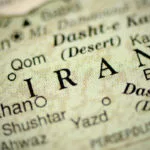
(LONDON) — When she hopped on a taxi in Tehran this past summer, Raha was not wearing a headscarf.
Her open challenge to the mandatory hijab rule in place in Iran for the last 40 years did not go unnoticed. She said her male taxi driver complimented her for the brave gesture, like many other men have done since the death of 22-year-old Mahsa Amini, who died in the custody of the police for allegedly wearing her headscarf improperly.
“You are going to change this regime. It’s the way to go,” the driver said to Raha, as she told ABC News. She wanted her real name not to be used for her safety. “You are so strong and free-spirited. We are proud of you.”
Raha said she faced at that moment another aspect of the reality of the Mahsa revolution, which had been going on for over 10 months. The praise of the taxi driver should have made her feel more hopeful for the future. Instead, it made her reflect on how men in Iran support the movement.
“I want them to know I am not strong. I am tired of them expecting me to always be strong and them just being proud,” she said. “I told him I wanted men to really join us in this fight, both on and off the streets.”
For Raha, then, being cheered on was not enough.
“Woman, Life, Freedom” is a movement of women but without men’s solid support, it would be doomed to fail, as experts and activists say.
At least 551 people have been killed and 22 have died of suspicious deaths connected to the regime since September 2022, according to a report by Iran Human Rights. Nearly 80% of the victims were men, the group said. Moreover, only men were executed by the Republic in retaliation to the uprising. Amnesty International said the men were hanged after “sham trials.”
Iranian women believe the regime is trying to scare men from joining their mothers, sisters and wives in their fight for equal rights by making them the main target of their systematic bloody suppression.
“Although the focus of the movement is on women rights, the people who got executed for the revolution are primarily men,” Nasrin Rahimieh, an expert in Iranian and women studies at University of California Irvine, told ABC News. “The reason why it’s cross-gender is simple: it is about the rights of the individual.”
Men’s support for the cause of Iranian women can come in many forms and levels, from active participation in protests, to online campaigning, and more importantly, “accepting women’s choices about their lives,” Raha said.
As she explained, the pressure to follow the lawful dress code also comes from conservative male relatives. Something she’s seen changing.
“Mahsa’s revolution was actually a renaissance in Iranian society. I am witnessing this renaissance in my own family which is from one of the most traditional classes of Iranian society,” Raha said. “Now the very same family, the very same society, which was restricting me, is encouraging me.”
Hamoun, 21, kept up his support both on and off the streets. He was arrested and tortured by the security guards on Saturday as he participated in a peaceful gathering for the one-year anniversary of Amini’s death in Tehran. He said he was handcuffed, beaten up, insulted and verbally threatened.
“I think that all of us should participate hand in hand in this revolution and defend the right against oppression, be free and save our country from poverty and ignorance”, Hamoun told ABC News.
“To me, the slogan of a woman’s life of freedom is more than a slogan,” he said. “It’s a belief that we should all believe in and apply, especially as men.”
Experts suggest that the aggressive rate at which the regime has been imprisoning or executing men involved in the protests it’s a clear sign of its awareness that if men and women unite, it will struggle to contain the movement.
“The message is: ‘Don’t get involved,’” Rahimieh explained.
Iranian women who spoke with ABC News agreed it’s an attempt to intimidate.
“Since last year, many young men have been arrested and some of them have been executed without committing any crime,” Mahsa Piraei told ABC News.
She is a U.K.-based Iranian woman, whose mother, Minoo Majidi, was killed by the police during the protests last September. She recalls fearing her father would endure the same destiny if he supported the movement.
“When I was in Iran for my mother’s funeral, I could see the morality police everywhere in the street and I was shaking. I kept thinking, one of them is the murder of my mother,” Piraei said. “And I can remember I covered my hair because I was next to my dad, and I was very afraid that one of them would shoot my father as well, right there.”
She added, “I think the regime wants to scare men to stop them from supporting the women of Iran. I don’t think it’s succeeding.”
Copyright © 2023, ABC Audio. All rights reserved.
